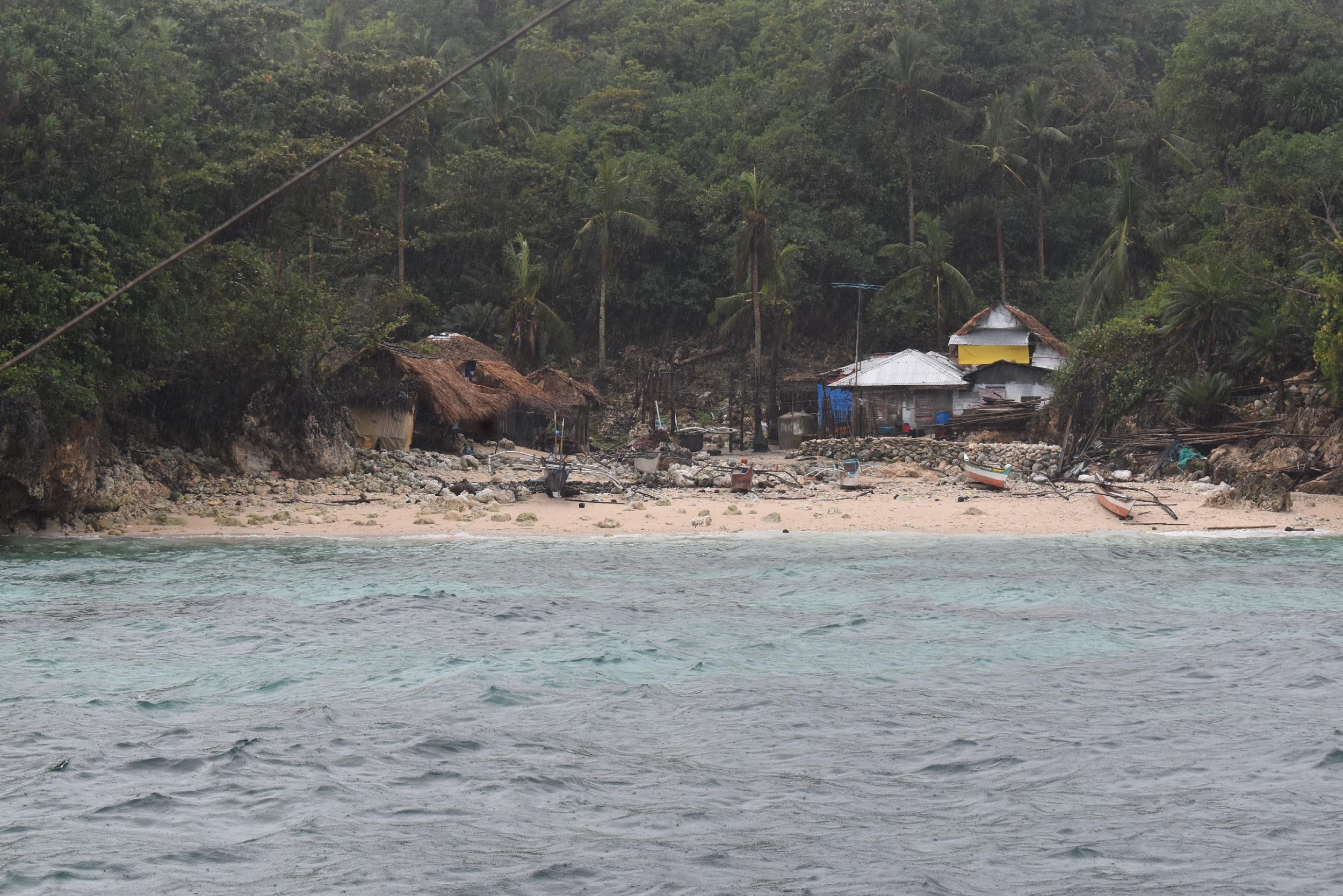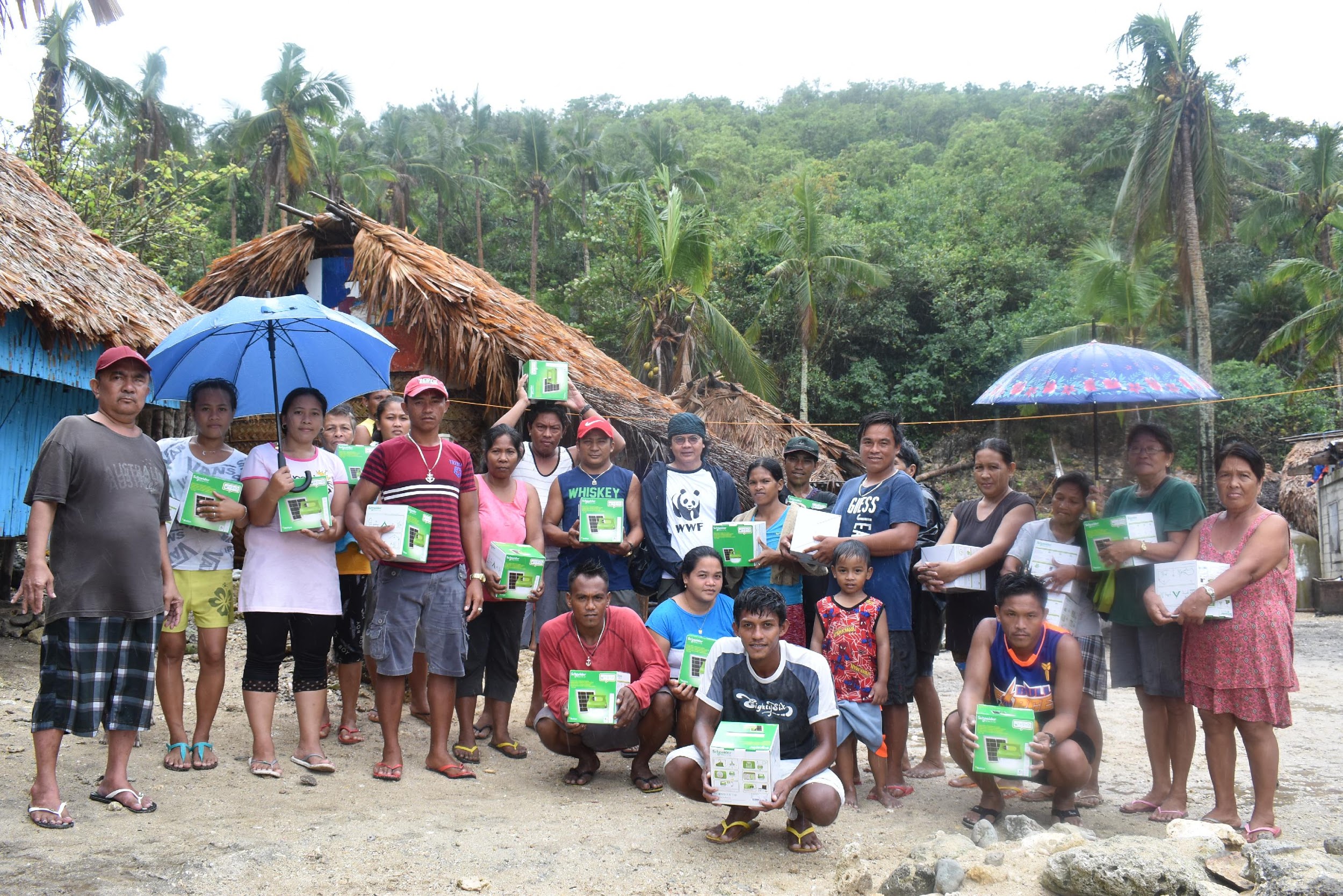In the Spirit of Earth Hour, WWF-Philippines Brings Solar Lamps to Remote Fishing Village in Masbate
March 2020

Staff from the World Wide Fund for Nature (WWF) Philippines turn over solar lamps to the community of Tapahan, Masbate. Photograph © WWF-Philippines
In the spirit of Earth Hour, WWF-Philippines brings renewable power to those most in need of it.
On the 6th of March, solar-powered lamps were turned over by the World Wide Fund for Nature (WWF) Philippines to some 40 households in Guinhadap in the municipality of Monreal, Masbate, in order to provide light to the community.

Sitio Tapahan in Brgy. Guinhadap is a remote fishing village at the northern tip of Ticao Island. The sitio has historically lacked resources to ensure food and water security as well as viable sources of electricity. Photograph © WWF-Philippines
Sitio Tapahan, in Brgy. Guinhadap, Montreal, Masbate, is a small fishing village located at the northern tip of Ticao Island. A remote sitio, Tapahan lies off the Masbate grid and has never had electricity, with its inhabitants relying instead on kerosene lamps to light up their village at night.
“We chose Tapahan because the community has been heavily affected by Typhoon Tisoy. There is no source of electricity for this community either, so we decided to give them aid,” said Jun Narvadez, WWF-Philippines Project Manager for the Donsol Integrated Conservation Project. WWF-Philippines pursues climate-friendly solutions to address the needs of rural communities. With their new solar lamps, the people of Guinhadap will have a more reliable and environmentally-friendly way of lighting their village.

WWF-Philippines stand with the people of Tapahan, solar lamps in hand. Tapahan was a WWF-Philippines Earth Hour Village, and the organization has historically provided the town with water tanks and conducted sustainable farming workshops to meet the needs of the community. Photograph © WWF-Philippines
Tapahan has been under WWF-Philippines’ Earth Hour Village project since the organization first installed water tanks back in 2017. Prior to the installation of the tanks, residents had no choice but to walk five kilometers just to retrieve water. Aside from water tanks and solar lamps, WWF-Philippines has conducted sustainable gardening workshops for the community.
“The Earth Hour Village project ended about three to four years ago. Even if it had, though, we recognized the community still has many needs that we could help with,” added Narvadez. The Earth Hour Village project provided remote communities with development support that is both sustainable and environmentally-friendly, in order to help improve their resiliency against the current environmental crisis.
While WWF-Philippines has provided comprehensive support to the people of Tapahan, there are many communities who still lack basic resources and who remain vulnerable to changes in their environment. Work with WWF-Philippines, and help us #ChangeTheEnding for communities like Sitio Tapahan by building a future that is greener and fairer for all.
For more information, please contact:
Mr. Jun Narvadez
Donsol Integrated Conservation Project Manager
mnarvadezjr@wwf.org.ph
For media arrangements, please contact:
Ms. Pam Luber
Integrated Communications Manager
pluber@wwf.org.ph
